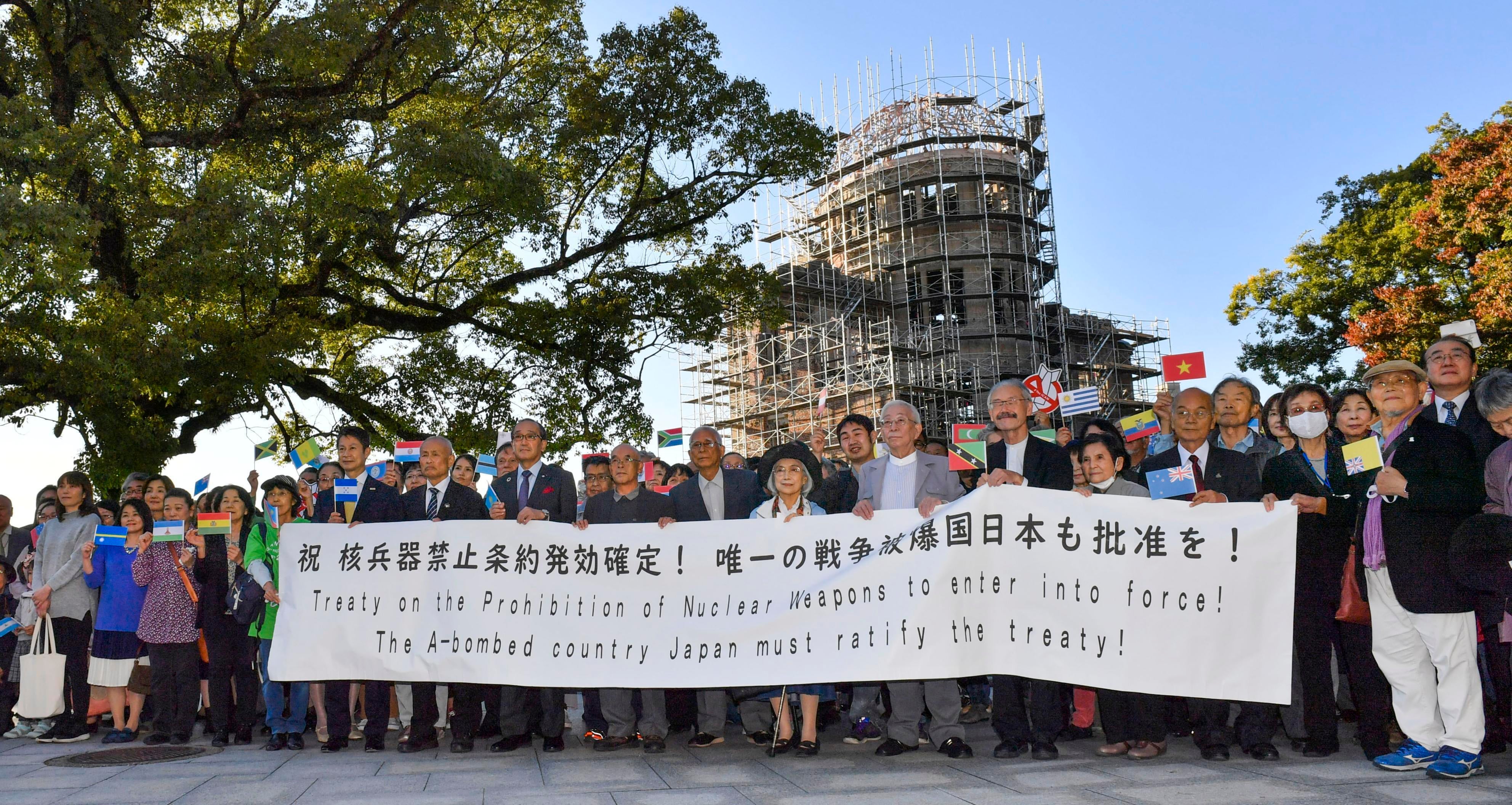Nuclear-armed states are on the wrong side of history
The Treaty on the Prohibition of Nuclear Weapons will enter into force on 22nd January 2021, writes Becky Alexis-Martin. But will anything change?


For 75 years, people have fought to abolish nuclear warfare. In the 1940s, the atomic scientists of the Manhattan Project delivered the Szilard Petition to President Truman. In the 1950s, the great thinkers Bertrand Russell and Albert Einstein clubbed together to produce the Russell-Einstein manifesto. In the 1960s and 1970s, Pacific and African American anti-nuclear voices became louder. From the Greenham Common women to the CND, millions of people have pushed back against the harm of nuclear weapons.
Finally, their voices have been heard. On Saturday night, Honduras made history by providing the 50th ratification for the UN Treaty on the Prohibition of Nuclear Weapons (TPNW). This treaty will now enter into force on 22nd January 2021 – and it will criminalise nuclear warfare. State parties to the treaty have vowed never to develop, test, produce, acquire, possess, stockpile, use or to threaten to use nuclear weapons. This presents an important symbolic shift toward re-stigmatising nuclear war.
Blunt Trumpian persuasion did not prevent the TPNW from coming into force, despite Trump’s battle-cry for countries to withdraw from what he described as a “dangerous” treaty. Japan has pushed back against the TPNW though, despite being the only nation where nuclear weapons have been used in warfare. Chief Cabinet Secretary Katsunobu Kato declared that while “Japan shares the goal of this treaty, the abolition of nuclear weapons… we differ in how to approach the issue, we will not become a signatory.”
By continuing to shelter under Trump’s nuclear umbrella, Japan highlights the issues of lingering Cold War alliances. It also rejects the wishes of the Hibakusha – those who survived the bombings of Hiroshima and Nagasaki.
Nine nations, including the UK, intend to retain their nuclear arsenals. Dozens more captive nations tolerate missiles on their soil and submarines in their waters, in exchange for negative protection. The five permanent members of the UN Security Council – China, France, Russia, the UK and the US – have collectively stated that they will not support, sign or ratify the treaty. So, will anything change?
Currently, global arms control resembles a playground tussle rather than a diplomatic effort. Despite Trump pushing for a deal before the election, the US and Russia continue to dither and panic as they try to renew NewSTART nuclear agreements. China remains reluctant to participate in trilateral arms negotiations until the US reduces its arsenal. In the background, all three states are currently developing deadly new tactical weapons. In early October, North Korea’s Kim Jong-Un unveiled a new intercontinental ballistic missile. From this collective posturing, it is clear that none of these nations have any intention of disarmament – and that nuclear weapons are not a credible or stable option.
I spoke to Dimity Hawkins OAM, the co-founder of ICAN, about how we can think forward in light of the pressures faced by this symbolic treaty. She said, “Those who possess, fund, facilitate or excuse these weapons of mass murder have been worried. Those who possess these weapons may not willingly give them up. They have worked hard to undermine the Treaty, to silence small nations, and undermine survivors and activists, but the momentum continues to build. The global community is uniting to remove the infrastructure that allows nuclear weapons to remain a threat to our collective security.”
As the TPNW comes into force, nuclear-armed states are now on the wrong side of history. A nuclear war can never be won, and should therefore never be fought. The TPNW offers a turning point for disarmament, at a time when global security has deteriorated and norms against nuclear weapons are unravelling. It is the responsibility of the nine nuclear-armed nations to respond with dignity and commitment towards disarmament – otherwise they will become our future rogue states.
Dr Becky Alexis-Martin is a lecturer in human geography at Manchester Metropolitan University. She researches nuclear culture and geopolitics. She is the author of "Disarming Doomsday: The Human Impact of Nuclear Weapons Since Hiroshima", which won the L H M Ling Outstanding First Book Prize and was shortlisted for the Bread & Roses Award




Join our commenting forum
Join thought-provoking conversations, follow other Independent readers and see their replies
Comments